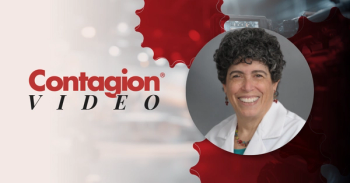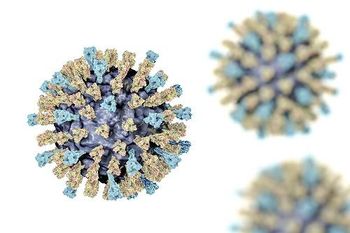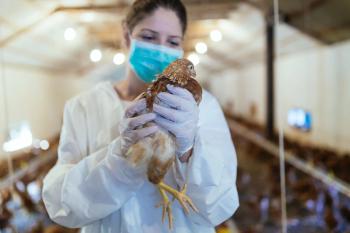
Transferring Social Media Best Practices From Oncology to Antimicrobial Stewardship
John Nosta, BA: Tell me more about the study and the grand rounds and the insights around that? What happened with that?
Debra A. Goff, PharmD, FCCP: Sure. Again, the surgeons have the rapport with the surgeons, and so it was actually a very easy opportunity to recruit them. We had several of all ages. There really wasn’t a specific gender or age. Across the board, we had young and old participants.
John Nosta, BA: So you didn’t stack the deck?
Debra A. Goff, PharmD, FCCP: No, they came to us.
John Nosta, BA: The distribution was natural.
Debra A. Goff, PharmD, FCCP: Female, male, young, middle age, and older patients.
John Nosta, BA: Wow. It wasn’t the excuse of, “I’m too old to be on Twitter”?
Debra A. Goff, PharmD, FCCP: But you know what? You are correct. The majority of people my age do not embrace learning something new. We’re so busy and are so overwhelmed with emails. I don’t want 1 more thing on my plate, nor do I want to learn 1 more thing. It’s another thing to learn. So there are barriers. That’s part of the reason why I am on social media. I am trying to break down that barrier. People who know me and trust me can say, “What is it that she feels is valuable? Maybe I should get on it [Twitter] and look.” I tell them, “You can be what we call a lurker. You actually don’t tweet anything. You don’t even have to sign up. You can look and test it out and see what you think.”
John Nosta, BA: Use it as a search engine.
Debra A. Goff, PharmD, FCCP: Exactly.
John Nosta, BA: I think it comes down to value.
Debra A. Goff, PharmD, FCCP: Yes.
John Nosta, BA: I have lots of friends who talk about technology—using this and using that. I ask them, “Have you ever done a telemedicine visit?” They haven’t. When they do it, they find that it works. It makes a lot of sense. I think finding that value…
Debra A. Goff, PharmD, FCCP: Regarding value from antibiotic stewardship, one of the most brilliant ways I’ve seen it used was in a big global study that tried to answer a question we’ve struggled with in the management of gram-negative infections—2 different classes of antibiotics. One is a carbapenem, which we call our last-resort antibiotic. You never want to overuse it, but in certain infections it is the drug of choice versus a beta-lactam antibiotic. There are 2 antibiotics that we use routinely in the hospital. Which one is better? This trial was called the MERINO trial. In the trial, investigators actually used Twitter. They started a MERINO trial Twitter handle for investigators to be able to follow the trial in real time, because the investigators who were enrolling patients in this study were all over the world. How do you coordinate that? Emails, conference calls? It’s so much time and effort. Everybody is on a different time zone. You could jump on Twitter. Even as someone who wasn’t a participant in the study, I could look and see how many patients were already enrolled and what countries were enrolling.
They learned that from the oncologists. Again, society values people with cancer more than antibiotic resistance. Oncologists have learned that you can go on Twitter and search for a hashtag on melanoma. You can search for information on melanoma and find academic medical centers like my own that are a part of a clinical trial for a new, novel agent for melanoma. To patients infected with this cancer, it’s advertising that there is a clinical trial at this hospital. People will go anywhere to find the best of care to possibly survive.
John Nosta, BA: We all struggle with recruitment in clinical trials and how to find the right patient.
Debra A. Goff, PharmD, FCCP: ASCO, the American Society of Clinical Oncology, has absolutely embraced Twitter as a vehicle to improve enrollment.
John Nosta, BA: I’ve argued and have gotten into a bit of trouble with this. Parents whose kids have cancer—the collective intelligence of that group is amazing.
It’s sometimes even better than the physician because they know the labs, they know the trials, and they know their kids.
Debra A. Goff, PharmD, FCCP: No one is going to advocate more than a parent.
John Nosta, BA: Yes, exactly. There really isn’t that kind of advocacy in antimicrobial stewardship.
Debra A. Goff, PharmD, FCCP: There isn’t.
John Nosta, BA: I don’t know if it’s a deficiency or a way of looking at it?
Debra A. Goff, PharmD, FCCP: When we started this discussion, you asked what is working and what is not. What’s clearly not working is that connection of the gravity of the situation right now with society. I think people feel that we’re crying wolf. They may think, “Oh, there are always antibiotics. We’re never going to really run out.” The United Kingdom commissioned a world economist who published a report in 2016. I think it was predicted that if we just stay on course, where we have a few pharmaceutical companies who are discovering an antibiotic here and there, antibiotic resistance will continue to win the game. Where will we be in 2050? The number of deaths from antibiotic resistance worldwide will exceed the combination of deaths from cancer, HIV, and traffic accidents.
John Nosta, BA: Wow.
Debra A. Goff, PharmD, FCCP: So we think of that, but it’s not resonating. That report has been out for a couple of years. It’s just not resonating. That’s the psychiatry and behavior changes. That’s the sociology degree I forgot to get. It’s just not working. We struggle. We have world congresses talking about why this does not seem to have the connection that cancer has. It’s just as bad. If you survive cancer, but you acquire an infection and it kills you, you’re not any further ahead. Dead is dead.
John Nosta, BA: Sure, yes. I wrote something in Forbes about fighting the next world war with a musket. That next war, as you know so well, is with infection. It’s with Ebola. We have tools at our disposal, but it just doesn’t seem to click, in many ways.
Newsletter
Stay ahead of emerging infectious disease threats with expert insights and breaking research. Subscribe now to get updates delivered straight to your inbox.

































































































































